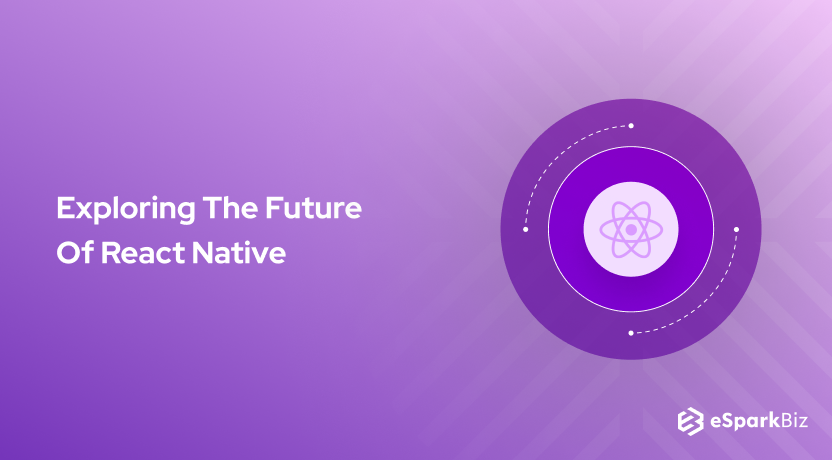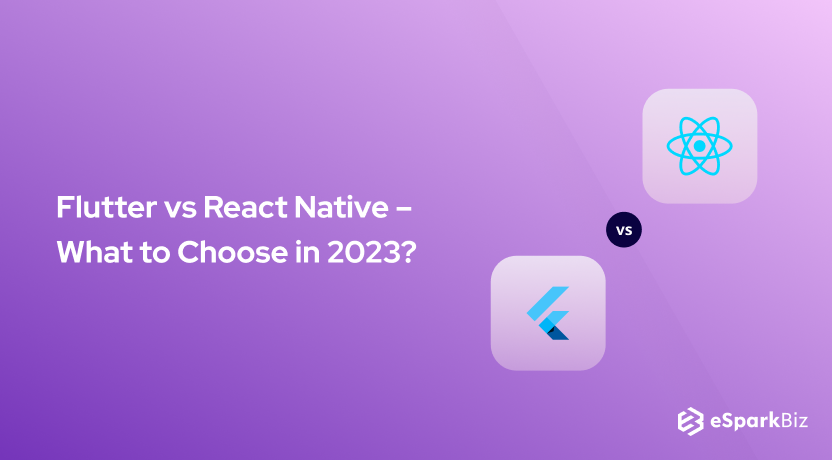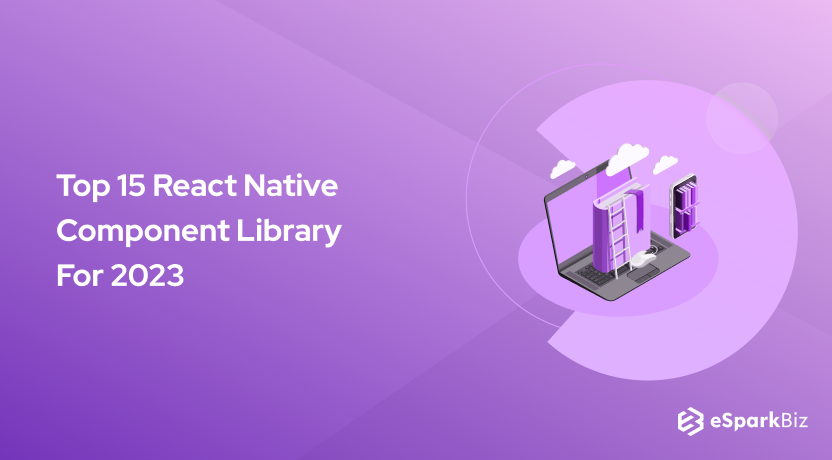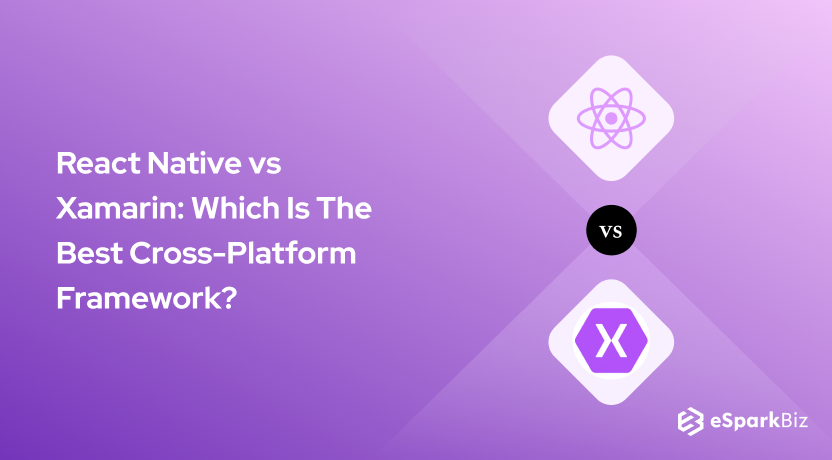From the amazing Facebook to the cool game PubG and from Uber to the supercool Instagram, what is common in all of them? The Javascript! A technology powerhouse that has given the best of app development frameworks. Today, we will analyze the Future Of React Native.
So, it will not be surprising if you consider the React Native community to be the next big framework in the app development world. The React Native framework for the mobile app market.
The mobile app revenues are expected to reach $935 billion by 2024. Most of the revenues come from in-app purchases and freemium models.
React Native Performance has gone to a roof in the last few years or so. Thus, it will be interesting to see how the future of react native eventually pans out.
It might look a valid question as React Native future depends on wider adaptations of the JS library. So, let’s find out some answers!
Why React Native is Gaining Popularity?
The most valid question around the app development circles is- “Are React developers in demand?” Because we have seen in the past that many frameworks flourish and then become obsolete.
So, getting above the learning curve and investing time for a framework should have a better prospectus. React Native has a bright future. Because it is not only supported by Facebook but a huge community of developers.
According to the StackOverflow developer’s survey, 2019 React Native lovers are almost 62.5%. It clearly states that React Native is one of the most loved frameworks for app development.
From the earlier releases to the latest version, React Native has seen a kind of evolution. This is the reason why to hire react native app developer and they are in demand nowadays.
Factors That Drive The Growth Of React Native
We saw how the framework is so popular. But, what are the factors that make it more attractive for developers?
Better Performance
Facebook created this framework as a part of its hackathon, but, over the years it has been phenomenal. Especially if you consider a Javascript-based framework, then React Native is one of the best with faster loading applications.
React Native provides a plethora of native UI components, boilerplate codes, and native environments that can help you with native-like apps. These apps are faster and more advanced. These apps are also quite interactive with the user and provide amazing UX.
Hire dedicated developer India to boost your application development and build reliable solutions with assured support from developers even after the project deployment.
Code-Sharing Bliss
If you want to reach more audiences, you need to create separate apps for Android and iOS. That means double development time and double the cost. But with the React Native community of cross-platform developers, you can save time as well as money.
Many companies choose React Native due to its capability of code-sharing. Developers can share as much as 90% of the source codes across platforms.
It helps businesses to reduce the Software development costs by 50-80%. So, businesses can invest more in their products than just development purposes.
Codesharing is great for your business not just for the most part, but, it can help you achieve better UX. It is the reason why React Native developers are in demand. Companies can leverage this to create powerful apps with native UX through React Native.
React Native For Existing App
React Native is amazing and you will surely like to use it for your existing apps too. But, there is a little catch here. You need to use Cordova-based codes for using the React Native framework for your existing apps.
You can use the Cordova plugin in the React Native. For cross-platform apps, you can also use Ionic and Cordova plugins.
The Real Deal is Javascript
Javascript is the real silo behind the React Native. So, if you are looking for React Native developers for cross-platform apps, then you should demand JS expertise.
Javascript has been the powerhouse that brought many different technologies. So, finding developers with Javascript knowledge in the React Native community is not that hard.
Compatible Features
We have already seen how React Native offers compatible features for Android and iOS. But, the React native future will be more amazing than ever.
We will see the rise of React Native with compatibility to other platforms like Windows, macOS, Linux, tvOS, watchOS, and many more.
Empower React Native Community
The React Native community has been growing since its inception. There is a whole set of forums and discussion panels in the Github repository.
According to Sophie Alpert, the Engineering Manager at React:
“We know that some teams are looking for more thorough documentation in topics like startup optimization, where our expertise hasn’t yet been written down. Expect to see some of these changes over the coming year.”
The React Native repositories have seen more than 2,000 developers contributed 16,000 times for 300 releases in about 72 branches. These GitHub statistics show how Facebook is working towards the future of the React Native framework.
Early 2018 saw Facebook creating a strong and reliable react-native-releases repository. It was a library for all the releases in React native framework. It was envisaged as a platform for the fruition of collaborative efforts to React Native’s future.
In the same year, Facebook came up with a separate repository for discussions and proposals. A repository is a great place for contributors and developers to discuss different releases and tools for React Native.
The Ease of Web Apps
Now, you don’t need extensive code lists for your web applications development. Mobile applications are great and there is no way to ignore it. But, why not extend your already built websites to the world of smartphones with native wrappers.
That is where a React Native framework can help you find the best releases of web-apps. You can use React Native to create responsive web apps for your business.
Read also: 25 Of The Best React Native Open Source Apps & Projects
During the React native EU in 2019, Emily Janzer laid out a complete plan on phase-wise changes of React Native framework in 2024.
Phase One: Native Modules

The first phase will be focussed on the native modules for the cross-platform apps.
- Type-safe – An improvement over the safety of codes that you share between JS and native platforms.
- Less overhead – It will help reduce the callback overloads between Javascript and native environments.
- Faster Startup – It will reduce the initialization of native apps by default for faster loading apps.
Phase Two: Fabric
Fabric is a project by Facebook. It will change the React Native future. Fabric is a project to make React Native community and its tools more compatible with other platforms than the normal iOS and Android.
It will help create a lower overload on the app architectures and your apps will run faster than the old cross-platform apps in react.
Single Thread: A thread is a channel through which the system communicates to users. A user interface or UI is a medium to interact with the users.
To each user request, a UI has to go through three different threads. But, Fabric will help UI to communicate through callbacks across the Javascript.
Async Bliss: We have seen how asynchronous rendering works wonder. We saw it with Node.Js in the Javascript universe.
But, now with Fabric, it is going to be a reality of React Native in the future releases. Fabric will help the incorporation of async rendering in React Native.
Native Bridges: We have often seen that cross-platform apps struggle due to the gap between the shared code and native environments.
To enhance the debugging of such bugs, you need native bridges. Fabric will provide a simplified native bridge between the JS and Platforms.
It is a new single thread method that will enhance the UI for better interactions. It will provide:
- A native bridge between JS and OS platforms
- Improved user experience through highly reactive UIs
- Better code sharing with debugging capabilities
- Rapid loading mobile apps
Phase Three: New API
With the last phase of 2020, Facebook will be using the early releases of React Native like the new renderer(Fabric) and the native modules to create an initialization path.
It will help achieve faster apps. So, React Native will be faster to load and create rapid apps for your business. So, you can say that it is an upgrade that can change the future of React Native.
One of the most essential upgrades to watch out for in the React Native community is JavaScript Interface JSI. It is an interesting way to connect with the Javascript engine
It helps developers to connect with the engine while writing codes in C++. You can even use APIs like JSC and Hermes. You can use it for:
- Creating Javascript runtime
- Loading of JS bundle
- Callback functions for JS and C++
- Creating the JS objects and accessing them through C++
Top Brands Using React Native
React Native was introduced back in 2015 by Facebook. It was developed to support UI creation for mobile applications across platforms like Android and iOS.
It is an open-source framework that provides unique boilerplate codes, UI components, and other IDE tools for app creation. Javascript has been the pioneer of such frameworks and backed the React Native community.
Some of the bigger names in the business world that use React Native for app development.
- Tesla
- Skype
- SoundCloud Pulse
- Uber Eats
- Walmart
- Facebook Ads Manager
- Airbnb
- Bloomberg
- Baidu Mobile
Conclusion
There is no denying to the fact that React Native has been phenomenal not just for regular mobile applications but also for enterprise-grade solutions.
As the React Native community expands, we are bound to see more interesting releases. Releases like Fabric will ensure a new era of React Native in the future.
We all hope that you had a great time reading this article. It will prove helpful for any React Native App Development Company. Thank You.!
-
Is React Native The Future Of Mobile App Development?
The simple answer to this question would be YES. React native has a lot of potential to be the future of app development as it is lightweight & fast.
-
What Is The Future Of React Native?
The next big thing in the React Native is Fabric. Developers are working towards a big change to make React Native more flexible in hybrid scenarios.
-
Is React Native In Demand?
Since its inception in 2015, React Native has always been in demand due to its low cost and high-performance nature and it will remain so in 2024.
-
What Are The Factors That Drive The Growth Of React Native?
The factors that drive the growth of React Native are as below:
Improved Performance
Reusability Of Code
Incorporation Of Existing App
JavaScript
Compatibility
Web Application







